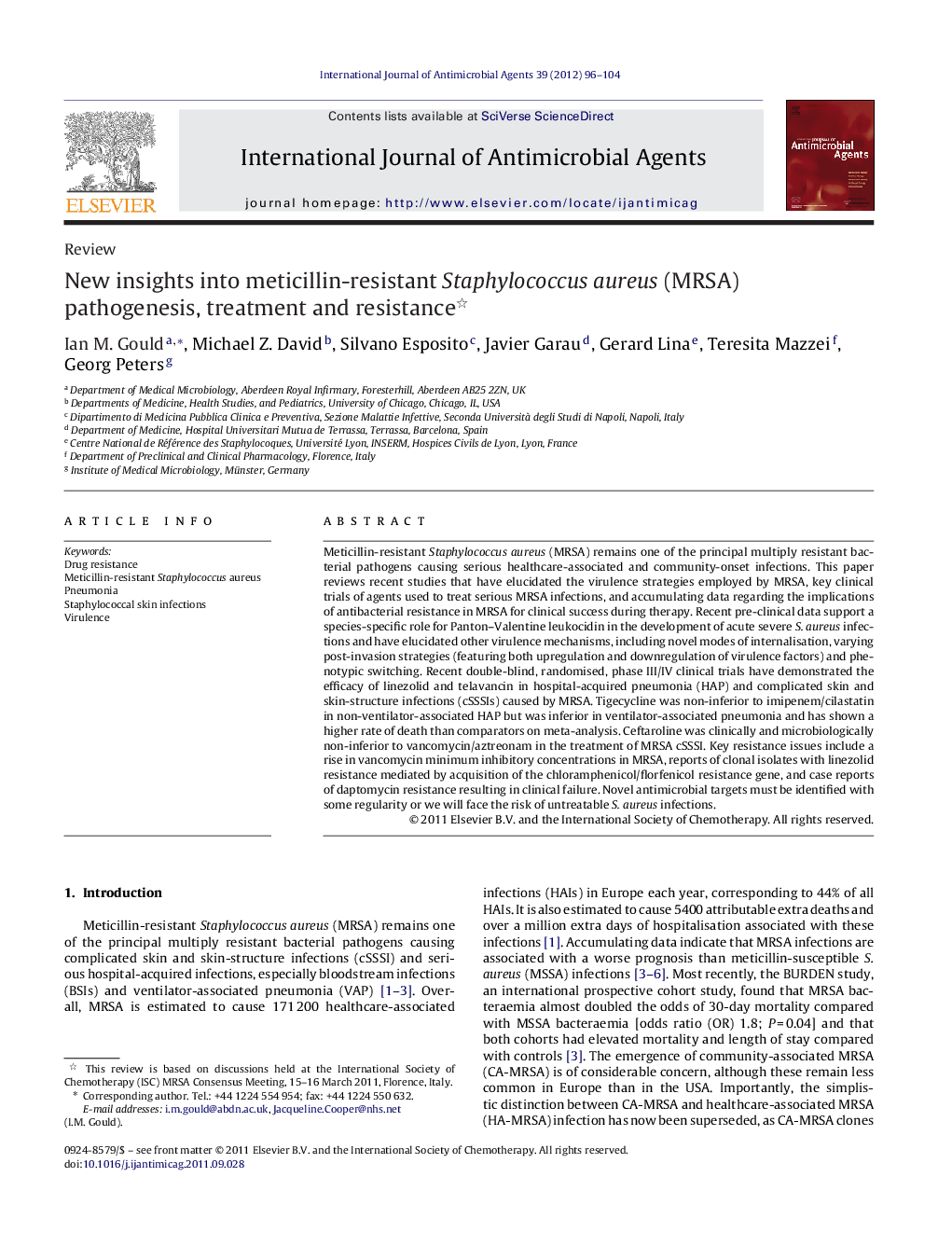| Article ID | Journal | Published Year | Pages | File Type |
|---|---|---|---|---|
| 6118165 | International Journal of Antimicrobial Agents | 2012 | 9 Pages |
Abstract
Meticillin-resistant Staphylococcus aureus (MRSA) remains one of the principal multiply resistant bacterial pathogens causing serious healthcare-associated and community-onset infections. This paper reviews recent studies that have elucidated the virulence strategies employed by MRSA, key clinical trials of agents used to treat serious MRSA infections, and accumulating data regarding the implications of antibacterial resistance in MRSA for clinical success during therapy. Recent pre-clinical data support a species-specific role for Panton-Valentine leukocidin in the development of acute severe S. aureus infections and have elucidated other virulence mechanisms, including novel modes of internalisation, varying post-invasion strategies (featuring both upregulation and downregulation of virulence factors) and phenotypic switching. Recent double-blind, randomised, phase III/IV clinical trials have demonstrated the efficacy of linezolid and telavancin in hospital-acquired pneumonia (HAP) and complicated skin and skin-structure infections (cSSSIs) caused by MRSA. Tigecycline was non-inferior to imipenem/cilastatin in non-ventilator-associated HAP but was inferior in ventilator-associated pneumonia and has shown a higher rate of death than comparators on meta-analysis. Ceftaroline was clinically and microbiologically non-inferior to vancomycin/aztreonam in the treatment of MRSA cSSSI. Key resistance issues include a rise in vancomycin minimum inhibitory concentrations in MRSA, reports of clonal isolates with linezolid resistance mediated by acquisition of the chloramphenicol/florfenicol resistance gene, and case reports of daptomycin resistance resulting in clinical failure. Novel antimicrobial targets must be identified with some regularity or we will face the risk of untreatable S. aureus infections.
Keywords
Related Topics
Life Sciences
Immunology and Microbiology
Applied Microbiology and Biotechnology
Authors
Ian M. Gould, Michael Z. David, Silvano Esposito, Javier Garau, Gerard Lina, Teresita Mazzei, Georg Peters,
